European Nation's Only Bear Successfully Exterminated
“The male bear, known as M13, was shot dead by wildlife rangers on Tuesday, said Adrian Aeschlimann, spokesman for the Federal Office for the Environment. ‘The cull was carried out according to the management plan for bears in Switzerland,’ he told AFP on Wednesday.”
— Imagine that quote in the original German.
Man Finally Gets Around To Book From 2010
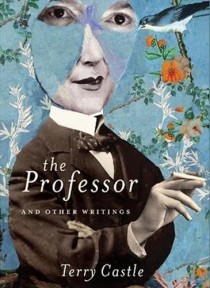
I have of late become a remarkably slow reader of books. I blame this on any number of things — the constant state of distraction with which we all now contend, an increasing lack of interest in devoting the disturbingly brief amount of time I have remaining on this earth to the act of consuming anything that requires sustained concentration, all the fucking periodicals that are piling up and mocking me from the magazine rack (Cabinet specializes in urbane yet cutting remarks about my intellectual vigor, the New Yorker raises a smug eyebrow while questioning my compassion for the poor people of Syria and the New York Review of Books berates my indolence by showing an unexpected facility with Uruguayan racial taunts. Vanity Fair alone displays a sense of compassion and understanding. “Take your time,” it says soothingly. “I’m mostly ads anyway.”). In any event, when I actually do force myself to confront anything that has an actual binding it generally becomes some sort of endurance test wherein I try my best to slog through something that the rest of the world was done with at least three years ago. But I am happy to report that I recently completed Terry Castle’s The Professor and Other Writings, which happens to be available at a reduced price on the bookselling website that makes well-meaning people who fear for the state of the publishing industry issue monologues whose sincerity cannot be doubted but about which my level of compassion is generally on par with the rest of my depleted emotional capacity, which is to say that yes, I wish we did live in a much better world where everything was fair but I’m going to die soon anyway so second-day delivery at a steep discount is both the easier and, from a strictly actuarial standpoint, most sensible option. Anyway, The Professor: if the book carried the title composition alone it would be well worth paying the full freight, but you also get a group of other excellent essays, including “My Heroin Christmas,” an essay mostly about Art Pepper that is so amazing I can still remember reading it for the first time nearly a decade ago and thinking, “Oh my God, this is brilliant, more please.” Castle is one of those writers who is so physically present in her pieces that you feel as if she is there telling you the story in person, touching your hand at the appropriate moments and acknowledging how mortifying some of her revelations can be because we’ve all been there too. You hear her laughing at herself and bringing you into her circle while simultaneously nodding at your shame-filled recognition of the similar behaviors you have exhibited in your own life. Of course, this may just be me — I’m a bad person and maybe not a reliable recommender of things, but like I said, the book’s a bargain. If you’re looking for something with which to fill the time, you could probably do a lot worse.
This Weekend in NYC: Your Oscar Ballot Hot Tip is "Asad"
A weekend of terrible weather and a hot tip for your Oscar ballot! Plus more more more.
DJ Johnny Dynell And The Glories Of New York's 80s Club Scene
DJ Johnny Dynell And The Glories Of New York’s 80s Club Scene
by Sean Manning
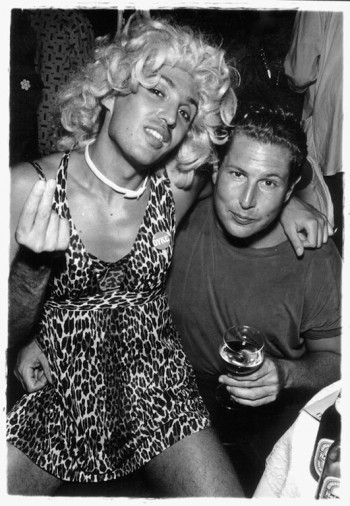
Last weekend Mark Kamins died of a heart attack at age 57. The legendary DJ and producer — who worked with David Byrne, the Beastie Boys and Sinéad O’Connor — was best known for producing Madonna’s first single, 1982’s “Everybody,” and helping sign her to Seymour Stein’s Sire Records. Around that same time, Kamins produced another popular single, the dance-rap track “Jam Hot” by Johnny Dynell. (The song was featured in the iconic 1983 graffiti documentary Style Wars, and its lyrics — “Tank Fly Boss Walk Jam Nitty Gritty/You’re listening to the boy from the big bad city” — were sampled in the #1 U.K. single “Dub Be Good To Me” by Beats International, the 1990s electronic group led by Norman Cook, a.k.a. Fatboy Slim.)
Dynell’s recording career was quickly eclipsed by his work as a DJ. For the last three decades, he’s manned the decks at every New York City club of note — Mudd Club, Danceteria, Limelight, Area, Tunnel, Palladium, Roxy, Crobar, Greenhouse, XL, Le Bain. With wife Chi Chi Valenti, he also operated the iconic clubs Jackie 60 and Mother, helping transform the Meatpacking District into a nightlife mecca. These days Dynell is as busy as ever: DJing four nights a week; providing the soundtrack to such gala events as the AMFAR Cinema Against AIDS party at the Cannes Film Festival; and organizing with Valenti for this year’s Stevie Nicks fan fest “Night of A Thousand Stevies.” We spoke over dinner at Café Orlin on St. Marks Place.
Sean Manning: Is it inappropriate to ask how old you are?
Johnny Dynell: Yes. Don’t ever tell anyone your age because they’ll treat you that way.
Where are you from?
I am from a very small town way, way up on the border of Canada. It’s upstate New York, but when people say “upstate” they usually mean Yonkers. Go to Yonkers and then keep going for like six hours. That’s Fulton, New York. It looks like Wasilla, Alaska, but not as big or as glamorous. Nothing but snow — you get, like, 13-foot snowfalls.
That’s where my parents are from but when they got married, instead of settling down they got into the car and started traveling across the country. They were party animals. I was born in Illinois while they were on the road. We would stay in one town for two weeks, then we’d go to another town. My first couple of years were spent in motels. My father did odd jobs. At one point he was photographing people’s farms out west and selling them the pictures. He would take a picture of their farms from up in the air and my mother would hand-color them. Now that I think of it, my father didn’t have a pilot license. I don’t know how he was doing that.
Did you listen to a lot of music growing up?
Yeah, my family always had music blasting. My parents listened to R&B; and blues. Etta James, James Brown — very funky kind of stuff. Especially my mother. The first records that I bought were the Jackson 5’s ABC and Sly and the Family Stone’s Stand! It’s funny, though — the first records that I bought were actually cassette tapes.
How old were you when you came to New York?
I got out of Fulton as soon as I could. I was 18. I always wanted to be in New York. I don’t know why. It was just always calling me. It’s the big city. When I was a little kid, I’d see pictures of it on TV and I just had to be there.
I came here to go to the School of Visual Arts. I didn’t have any money at all. I actually hitchhiked here. I used to do that a lot. I never had to throw myself out of a car or anything but you meet a lot of interesting people hitchhiking.
I didn’t know anybody when I got to the city and had no place to stay. Luckily, I met this girl at a bulletin board. She was just out of a mental institution and putting up a sign looking for a roommate. I moved in with her. We lived on the corner of Bleecker and MacDougal. Eventually she had a nervous breakdown and went back to Bellevue. She was very sweet, very nice, just really crazy. I felt sorry for her. People used to come in and steal her thorazine.
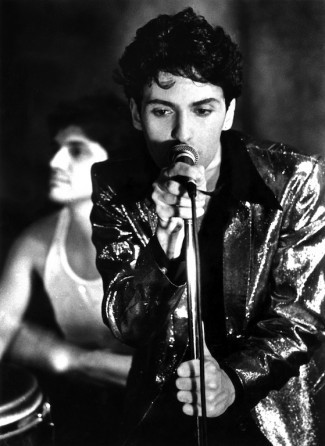
What did you do for money?
That whole time I was in art school I worked at different restaurants. My favorite was called FOOD. It was one of the first restaurants in Soho. Everyone who worked there or ate there was pretty much an artist or played in a band. Thurston Moore from Sonic Youth worked there, too. It was a great job and quite a scene.
At one point I worked as a waiter at the Buffalo Roadhouse in the West Village. It’s not there anymore. I was making good money as a waiter but it was just too hard. You know, being in school, playing in punk rock bands. So I traded the waiter job for one as a dishwasher there. It was a big pay cut but much easier, and I could listen to music.
You were in punk bands?
I didn’t have a musical background or play any instruments but that was the thing back then, to pick up an instrument and start an art-rock band. I was playing at CBGBs, Max’s, and in art galleries.
When you’re young and move out on your own everything is just a roll of the dice. Where you live, where you work, who you end up with, etc. When someone moves to New York, they may end up on the Upper West Side or they may end up in Brooklyn. I ended up in the East Village, Soho and Tribeca.
In those days, downtown wasn’t just a geographic location. Downtown was a way of life. It was an attitude. It meant something edgy. Now if you live in Tribeca, it means that you’re probably an entertainment lawyer. You’re probably a millionaire. I lived at Franklin and Church next to a gay black afterhours club called Buttermilk Bottom. The neighborhood was mostly artists, dancers and musicians. I was in art school and got the traditional art school education but my real education was living downtown.
I remember Ronnie Cutrone took me to the Warhol Factory once and Andy took a black marker and drew these pussies on my chest. Little vaginas. The next day in school I was studying Andy Warhol. It was weird. He was a big hero of mine and I feel so lucky to have met him.
So how did you transition from punk bands to DJing?
The DJ thing just happened by accident.
Downtown was very arty and campy, especially the punk scene. In 1980, the Mudd Club opened as a campy, funny punk alternative to uptown and Studio 54-type discos. We were making fun of them. The Mudd was a punk-rock club but it had a doorman, ropes, a mirror ball and a DJ. All tongue in cheek.
But what happened was — and people didn’t see this coming — it really took off. Every night of the week hundreds of people would line up outside the ropes hoping to be picked to get in. The Mudd Club turned into the very thing that it was making fun of. It took the disco concept into a whole new era.
I got a job as one of the DJs but it could just as easily have been as a busboy. The first night I got a bottle thrown at me. I was playing the Jacksons’ “Shake Your Body (Down to the Ground).” Some punk threw a bottle at me and yelled, “Take this fucking nigger music off.” Things were in transition.
In the beginning, DJs played a lot of rock at Mudd. But punk was going out and new wave, reggae, early hip-hop was coming in. On the second floor, DJs played everything from Frank Sinatra to Chubby Checker. It was all really new and fun.
Personally I’ve always loved disco. Even when I was playing in punk bands I was also going to the Paradise Garage and the Loft.
Did DJing give you the same artistic fulfillment as the other stuff you’d been doing?
Not at first. I grew to really love DJing but in the beginning it was just a job. I was just hanging out. It wasn’t till later on that I actually learned how to DJ. But I played at all of the new wave clubs. When Nina Hagen sings, “AM/PM, Pyramid, Roxy, Mudd Club, Danceteria” in her song “New York/N.Y.”, that really was my work week! I played at them all.
When I was DJing at Danceteria, Madonna was working in the coat check. Mark Kamins, who was the main DJ there, produced and signed both of us. Her song was “Everybody” and my song was “Jam Hot.” Both songs went on the radio and were minor hits. I’ll always be grateful to Mark for that. I learned a lot from him.
What’s your all-time least favorite club?
I hated the Limelight. It gave me the creeps the minute I first walked in. It had nothing to do with [owner] Peter Gatien, who I really like. It was the place. I worked there when it first opened. I was working at Danceteria and Peter brought me over to the Limelight. He paid me, like, ten times as much money but after a week or so I just had to quit. The place just spooked me. One time Chi Chi and I went there to see a friend’s band play. Another friend, Ruth Polsky, was meeting us. A car crashed into a cab on Sixth Avenue and the cab jumped the sidewalk crushing Ruth as she was walking into the club. It was horrific. Then the whole Michael Alig mess really clinched it for me. The club had bad juju from the start.
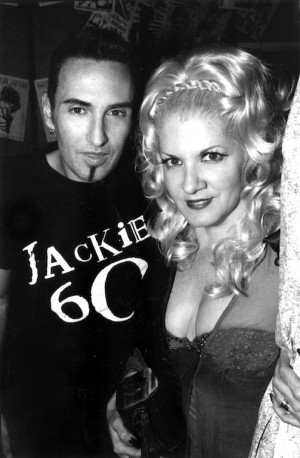
Why did you choose the Meatpacking District as the site for Jackie 60?
We started Jackie 60 in 1990, basically so we would have a place to hang out. It wasn’t like today where a group of lawyers or investment bankers fulfill their boyhood dreams of bottles and models and open a club. It was an artist community.
Friends of ours were doing a party in the Meatpacking on Fridays called the Clit Club. It was a really cool lesbian party. There was another hot party there on Saturdays called Meat. We took Tuesdays and called her Jackie.
It was in this little place called Bar Room 432 on the corner of Washington and 14th. Where the Scoop store is now. It was just one little room with a mirror ball and clip on lights. It didn’t have anything. We put a door over two sawhorses and that was the DJ booth.
The Meatpacking District back then was edgy. It felt kind of dangerous. Meat was hanging on hooks with blood dripping down on the sidewalk. You’d literally have blood on the bottom of your shoes as you walked past the transvestite hookers into the club. Europeans loved it. Someone had a great quote. They said, “I saw more topless European royalty at Jackie 60 than I ever saw on a beach in Saint-Tropez.”
We lost money for the first nine months. We were paying performers and dancers. We were building sets, making costumes. We would do a different theme every week. I had to take on another night DJing just to pay for Jackie.
We charged five dollars to get in. At first the only people who came were artists. The public didn’t know about it. Pedro Almodóvar would bring like 20 people. Julian Schnabel, Pat Field, Alba Clemente — they would all bring people and they would all pay. That got us through the early days. Then Jackie 60 exploded. The first night that we got busy Debbie Harry jumped behind the bar and started bartending. People were stunned. They don’t know Debbie.
Jackie became very fashionable. Marc Jacobs, who was an original Jackie 60 member, was soon followed by supermodels and other famous designers. Once those people are there carrying on — Naomi Campbell, Kate Moss, and Calvin Klein, crawling across the floor at 5 a.m. — you start getting Page Sixes and the masses. We needed a door policy.
The door policy was severe but very simple. It wasn’t about how much money you had or were going to spend. You just had to add to the party. When you walked up to the door, Kitty Boots would look at you and think, “What is this person going to add to the party?” For instance, if she lets in some rich old man, you know she’s going to let in some cute 17-year-old hustler knowing that they will work it out. We used to say, “For every cup there’s a saucer.” Jackie 60 was like Noah’s Ark, two of everything.
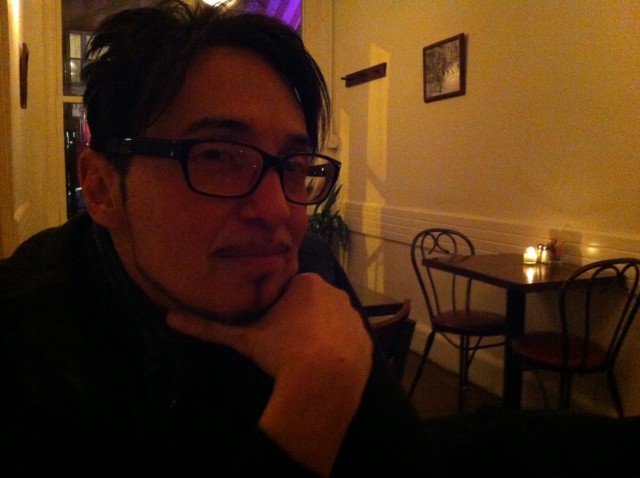
What do you think of DJs today — David Guetta, Deadmau5, etc.?
DJing has changed so much. When I first started, there were like a hundred DJs. You knew everybody. Now there are a hundred DJs in my building! Every kid over the age of 14 is a DJ. They put DJ in front of their name on Facebook, get Serato, and think that they’re a DJ. It used to take technical skill to mix records. Now there’s a “Synch Button” that you push and it blends the two songs together. I’m sorry, that’s not DJing.
Guys like David Guetta — they’re pop stars. They’re not really club DJs. They do 45-minute sets that are basically video and light shows. They do these cheesy DJ moves like pump their fist in the air and the kids go crazy. If you ever see a picture of these guys DJing, they always have one fist in the air and the other hand is on… On what? What is it doing? Hitting synch?
I do like Deadmau5. I think he’s a very smart guy. I’ve played with him a couple times. I know a lot of people think that the mouse-head thing is just a gimmick but I like what he does. To me, he’s creating this living Dadaesque avatar. I see him as a performance artist. Plus, he’s a bad-ass DJ and producer.
What do you think of New York’s current club scene?
There are some great new house music parties going on now. Parties like Spank, Wrecked, Bassment, ElevenEleven, and Westgay all have that old Jackie feeling. I love it. For a while it was just all about bottle bars. Thank God that’s over!
What’s the one song, no matter the crowd or venue, that never fails to get people on the dance floor?
Cheryl Lynn’s “To Be Real.” White people like it, black people like it. The Paradise Garage crowd would like it, the coolest Brooklyn hipster crowd would like it. It works right across the board.
Previously In New York Q&As;: A Q&A; With Editta Sherman, Celebrity Photographer, Age 100
Sean Manning is the author of the memoir The Things That Need Doing and editor of several nonfiction anthologies, most recently Bound to Last: 30 Writers on Their Most Cherished Book. He also edits the blog Talking Covers. From top: 1986 photo of Dynell with Julian Schnabel at the Palladium by Wolfgang Wesener; 1983 photo of Dynell performing “Jam Hot” at Danceteria by Chris Savas; photo of Dynell with Chi Chi Valenti at Jackie 60 by Paul Brissman; bottom photo by Sean Manning.
New York City, February 20, 2013

★ Not just fur-trimmed hoods, but fur-trimmed hoods pulled down tightly; not just scarves, but a scarf over the face. Handsome clouds gradually joined together to almost cover the sky. The sun still sallied through here and there, though it was not clear how. Then the clouds came apart again, and for a while things abated — till at evening, on the approach to Amsterdam from the east, the fading daylight and the darkening clouds and a sharp, rising wind gathered into a vicious finish.
I Can't Understand Why This Male Birth Control Technique Has Not Taken Off
“One of the easiest and most effective forms of birth control out there is something you’ve probably never heard of. WHY haven’t you heard of it before?”
'The Best Exotic Marigold Hotel' Is My Favorite Movie Of 2012
‘The Best Exotic Marigold Hotel’ Is My Favorite Movie Of 2012
by Bobby Finger
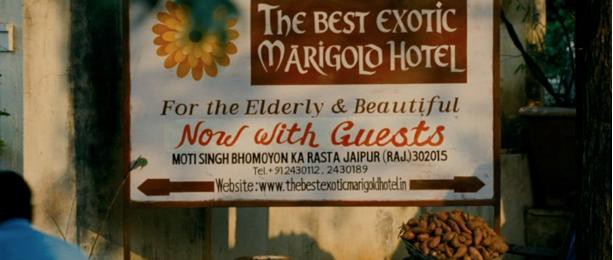
“Everything will be all right in the end. So if it is not all right, it is not yet the end.”
Some people think of that quote as belonging to Paulo Coelho. Others to John Lennon. A special few, however, know it as the oft-spoken adage of Sonny Patel, owner of a fictional hotel in Jaipur, India. As someone who believes The Best Exotic Marigold Hotel to be the best movie of 2012, the fact that I fall into the latter category should be no surprise. It should also be no surprise that many people choose not to believe that I’m serious about loving it as much as I do. Seeing and enjoying poorly reviewed movies is a hobby — or perhaps condition — of mine (I saw Safe Haven last weekend on my day off from work), so I don’t have the best track record.
As the Oscars draw near, the next in a series about our strong movie opinions, past and present.
I’m aware that a movie about seven elderly Brits who move into an Indian hotel sounds like a red flag to many people, so I understand why you think I’m joking or perverse or wrong in liking The Best Exotic Marigold Hotel as much as I do. But I’m not. And it’s my goal to make you believe me.
Though Oscar nominees for Best Picture are by no means a definitive list of a given year’s best movies, the spotlight placed upon them during awards season provides the kind of widespread familiarity that should help with my upcoming comparisons.
Even though I loathed every speaksongy second of Les Mis and was genuinely shocked by just how generic Argo ended up being, if I were to replace a single Best Picture nominee with TBEMH, I’d go with Silver Linings Playbook. The two films have large casts filled with tremendously talented actors. They both have a similarly fence-hopping tone that juggles laughs and tears. They also share themes like starting over, growing old, moving on from former loves, dealing with new ones, and seeking a purpose in one’s life. But! Silver Linings Playbook attempted to tackle all of the above by adding a rose-colored layer of super-cute mental illness to its lens, but mental illness isn’t all that cute. With those constant violent outbursts, Bradley Cooper’s Pat had no business being out of the hospital. He needed to get better. But Silver Linings Playbook had no intention of presenting characters who behave the way real people behave in situations where real people often find themselves. TBEMH did.
Earlier I described it as a movie about “seven elderly Brits who move into an Indian hotel.” And because it’s very easy for a movie that can be explained in so few words to create an equally simplistic final product, any of you who scoffed at the premise were entirely justified. It was adapted from a book I haven’t read, but people I’ve talked to who have say the two works have little in common aside from my initial nine-word description. But the film adaptation, at least, deserves some spinning out. Something like: a movie about seven British citizens in their twilight years who, for a number of reasons including health care, squandered savings, past loves, and new ones, move to an Indian hotel to better their lives. Yes. That’s better.
There is a humanity in The Best Exotic Marigold Hotel that isn’t evident in its marketing, or even its title. Both suggest a simple romp about nervous (and possibly xenophobic) Brits, but what we find instead is a thoughtful, funny, and occasionally profound story about getting older that doesn’t patronize its audience or reduce its characters to stereotypes.
Evelyn (Judi Dench) is introduced while setting up her new internet service after the death of her husband have left the utilities in disarray. An old person being overwhelmed by new technology is an easy joke, but TBEMH treats her as someone confused but capable; and her phone conversation with an Indian customer service agent isn’t used as a punchline, but as the beginning of a larger subplot. Evelyn gets a job (her first ever) as a consultant at an Indian call center in a series of scenes that both surprise us with their heart and impress us with their construction. Also, the death of M in Skyfall coupled with a TBEMH sequel in development means Judi Dench has found a new franchise to preside over.
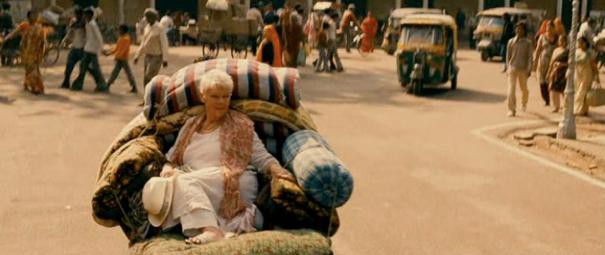
She’ll get to wear so much linen in this franchise.
Muriel (Maggie Smith) is the oldest and most crotchety of the bunch, having come to India because it was the cheapest and most immediate option for her hip surgery. She’s an angry, intolerant old woman who, at the movie’s start, finds India and its residents appalling, but she eventually changes her attitude. And though her eventual 180 is expected, it takes time. It’s earned. TBEMH understands that we don’t change at the drop of a hat or simply because it’s the third act, and Muriel is given a reason to decide it’s time to change.
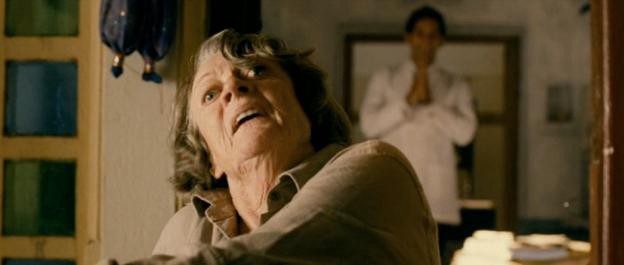
Anne Hathaway could never make this face.
The only married couple in residence are Douglas and Jean (Bill Nighy and Penelope Wilton), who came to The Best Exotic Marigold Hotel after a bad investment left them with nothing but dreary, panic button-filled retirement options in London. Their marriage has devolved into a relationship filled with tension and devoid of love, and while Nighy and Wilton are arguably the film’s most experienced comedic actors, they turn what could have easily been Archie and Edith into a heartbreaking and honest portrayal of a marriage that’s run its course.
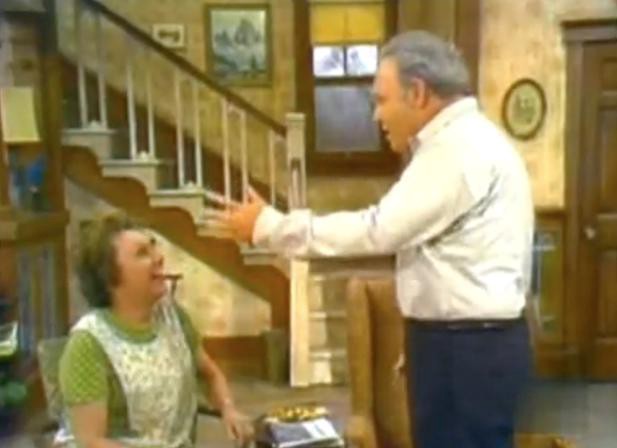
This is not a screencap from The Best Exotic Marigold Hotel.
Singles Madge and Norman (Celia Imrie and Ronald Pickup) are the horniest of the residents, deciding to leave England after feeling like they’d exhausted its pool of potential partners. Both are looking for sex and are outwardly confident about their prospects, but they have an unshakable, private fear of dying alone. Any movie can throw in a Viagra joke, but TBEMH turns what could have been an easy joke about that funny blue pill into something sweet and, to some extent, hopeful.
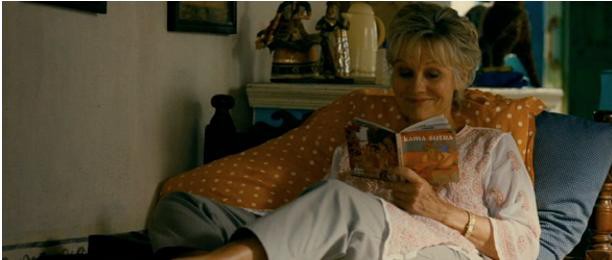
Can you handle how wonderful this is?
Even Sonny (Dev Patel), the owner of the hotel, gets a subplot. When his mother arrives unannounced, she makes her disapproval of his personal and professional choices loud and clear. And though it could have been written as a cliche-filled throwaway story about arranged marriages, it’s given the time to become as satisfying as the others.
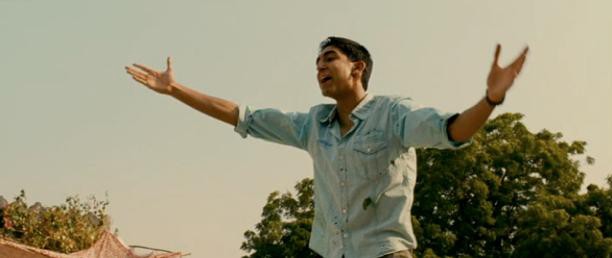
Dev Patel is in “The Newsroom.” I hate “The Newsroom.”
The final resident is Graham (Tom Wilkinson) and he’s given the best subplot and you’ll be in tears because Tom Wilkinson is perfect and that’s all I’ll say about him.
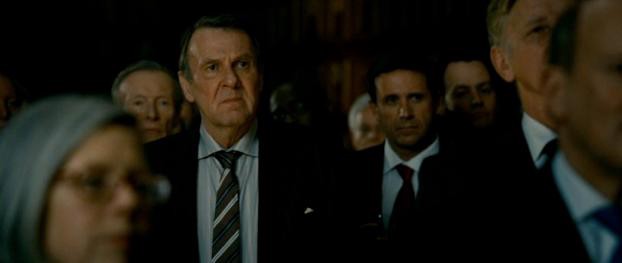
To me, he is perfect.
Perhaps it isn’t hard to convince all of you that an octet of respected British thespians makes a movie worth watching, but I think the movie’s setting may be holding you back. I’ve been asked on more than one occasion whether or not the film has a xenophobic or outright racist representation of India, and my answer is a very confident “No.” This is a story could have been set in any place its central characters consider unfamiliar. Though the elderly Brits are initially overwhelmed by the cultural differences, the setting is never presented as backwards or undesirable. Though hesitant at first, everyone gets used to the food. To the transportation. To the customs. The residents of The Best Exotic Marigold Hotel do their best to not only adapt to their surroundings, but to accept and find comfort in them.
Because not everyone in the movies goes abroad to eat, pray, and love for a holiday. Not everyone in the movies experiences something different only to return home and pat themselves on the back for surviving it all. The characters of TBEMH are in India to stay, and by the end it becomes their home.
So what do you think? Are you convinced? Are you willing to take a chance on Judi Dench? Maybe I was too complimentary. If so, I should ground it with some criticism. Here goes.
My one complaint with The Best Exotic Marigold Hotel is the inaccuracy of that saying, so allow me to offend Paulo, John, and Sonny by offering a revised version: Everything will be all right in the end. So if it is not all right, it’s because it’s the Oscars.
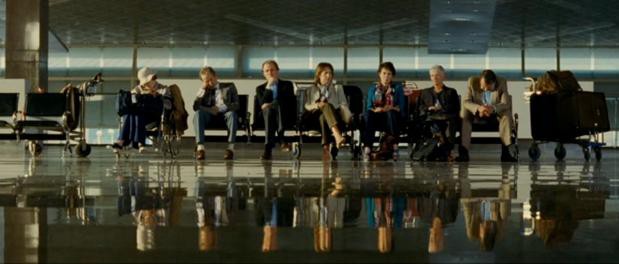
Previously in series: How Did ‘Forrest Gump’ Ever Beat Out ‘Pulp Fiction’ For Best Picture?
Bobby Finger will be rooting for Amour on Sunday. He will be disappointed.
A Poem By Tom Spencer
by Mark Bibbins, Editor
TERROR OF THE ZYGONS
Je sais bien, mais quand même.
This one they call the Doctor is a threat to us. Already he has found out too much. He must be destroyed.
a very drab term Doctor comprises
any passive attitude toward
her oiled hand returned to my one,
the Doctor, increasing her is
she a threat until it popped
out of us from the already.
With each has, I found harder through
too much. O, me alone! Extreme
instance of which appears to be
that in which threat is conditional
upon suffering physical or mental
much at the hands of the Doctor.
The Doctor grew must and be as
she destroyed then I took This one
and whisper’d to her: Have you any
they? Call gave me and smiled:
you a Doctor is, I see,
threat. Well, well, I am old
in that much is the only way
you will ever call again.
Selected humans provide us with body prints, a Zygon device that is beyond your understanding.
She does not have to know because
she puts his eyes on and his face
and his ephemerality
transports her to another place.
Selected humans body prints
beyond her understanding go.
The job of a Zygon device
is to permit her not to know.
Just beyond Brentford. A disused quarry. We’ve got them, Mister Benton!
Benton, oblique, noses searchingly
he’s been got for us for years.
His teeth grow. He says he has
run them to ground. He says what
we are disused on the edge
of understanding, he thought
he would have found us by now
just to get out and ring the doorbell. Beyond
Brentford opens the door for you
do whatever your quarry
told about going in, they’ll force you;
we’ve got them now
might be a good time to explain your new life, Mister Benton.
Tom Spencer is a critic and poet who teaches in Montgomery, Alabama. His work has appeared in Catechism: Poems for Pussy Riot, the Times Literary Supplement, The National, American Literature, and elsewhere.
No, you’re not wrong: we DO have plenty of other poems for you to enjoy. In fact, they’re right here waiting. You may contact the editor at poems@theawl.com.
